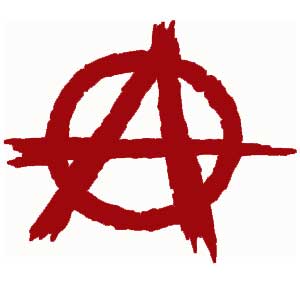Wednesday

Jacques Ellul had a unique definition of anarchy: "By anarchy, I mean first an absolute rejection of violence." Anarchy and Christianity, Eerdmans (1991) p. 11.
Such a definition might seem ironic, but it's not. When you spend a few minutes thinking intently about government, you realize that all government entails a level of force, and force is nothing other than implied violence: "Do X, or you go to jail. If you refuse to go to jail, we will force you at gunpoint into jail or we'll take you there in a headlock." Violence underpins political government, so if you reject all violence, you must reject government. It's that simple. It's no wonder that Peter Marshall points out in his excellent Demanding the Impossible: A History of Anarchism, that "only a tiny minority of anarchists have practised terror as a revolutionary strategy" and that "historically anarchism has been far less violent than other political creeds."
Of course, there are forms of government that don't entail violence. My local Kiwanis Club has a governing structure, and there's no violence, implicit or explicit. The same for the Catholic Church's governing structure (though its power of ex-communication might seem like a form of violence, it's a form of spiritual violence that occupies an entirely different plane from what I'm talking about here). There's a type of governance on my son's sports teams: a few kids naturally rise to the level of "leader" or even "captain," but there's no violence. Violence only enters with political government.
So could there be a form of political government without violence? No. Even the anarcho-capitalists who posit a society based on peaceful contracts would have a level of violence in its administration: if you breach a contract, private enforcement agencies will extract the damages from you, by force if necessary. Of course, you would have entered into the initial contract with full consent (unlike the bogus "social contract" that Enlightenment thinkers relied upon to justify violence against individuals), so, in a way, you would have consented to the violence, which makes the violence less objectionable than ordinary violence.
But no matter: The key point is that we need to instill in society the principle that all government is violence. It's one of those fundamental points that should be in the front of everyone's mind, but instead strikes most as some sort of intellectual gamesmanship. It's not an intellectual trick. It's a fact.
It doesn't make government bad, but it should make government limited.
